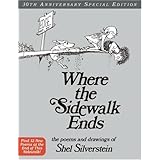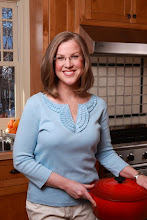

I love carrots and peas, but not the leftovers so much. I had not meal planned and was scrounging around for dinner. The last two times we ate out were such a pain in the butt that I am on a break for awhile– long waits, mixed up orders, too much money for the value (Bucca di Beppos.)
Anyway, so I found a pound of grass-fed ground beef (was $4 a pound, so is a cheaper way to do grass fed...) in the freezer, an onion and tomato sauce.
I thawed the beef, chopped and sauteed the onion, added the tomato sauce, a teaspoon of Italian herbs, a little salt, sugar and pepper and simmered away stirring occasionally.
What to serve for side? The leftover carrots were staring at me in the fridge and making me feel guilty. I dislike throwing out food, but I really dislike eating unappealing food just because "I should"- for any reason (nutritional or otherwise.)
So, I tried mashing up the carrots and peas and stirred them into the sauce. (I have a crappy food processor and it's hard to get out of the cupboard, so I just hand mashed it.)
Verdict?
The sauce was awesome! M ate it, even D ate it and he's not a fan of ground beef. M noticed some chunks of carrots in there. She asked, "Why are there carrots in here?"
I said, "That's how I made them tonight. Tell Daddy about your playdate!" She went right on eating.
Feeding tip:
I get the question about "sneaking" foods into mac n cheese or brownies a lot. In general, I don't think it's a great idea. If you are "sneaking" or "tricking" then there isn't the expectation of mastery. Woe is the mom whose kid finds out about the spinach in the brownies! It can REALLY backfire and slow down the process of learning to like new foods. (Plus, what a hassle! Moms describe having to grind up foods at night, or secretly, and be sure to hide any evidence of the offending agent.)
My concession would be if you are dealing with serious sensory integration or texture acceptance or medical/oral motor issues, or if your child is nutritionally not cutting it, then supporting good feeding practices with purees or smoothies is an option during the transition.
For most typically developing kids going through a picky stage or reacting negatively to feeding pressure, sneaking hurts more than it helps. I would also be very careful not to lie, remember the feeding model I work and live in isn't called the Trust Model for nothing!
Purees can boost the nutritional value and flavor, so feel free to use them, but remember to check in with your motives and if you are sneaking to add flavor and variety and boost nutrition, or to get around working on feeding issues or taking the easy road (for now.)
If you sneak, be sure to keep offering the real thing over and over, without pressure in a pleasant and structured setting (preferably family meals) so your kids can learn to like new foods.
Do you have sneaky confessions? Do you "sneak" and will you keep doing it? Did it help in a transition period?







 by far the most reviled is whole wheat pasta (blech, I know I "should" but I don't like it)
by far the most reviled is whole wheat pasta (blech, I know I "should" but I don't like it)















